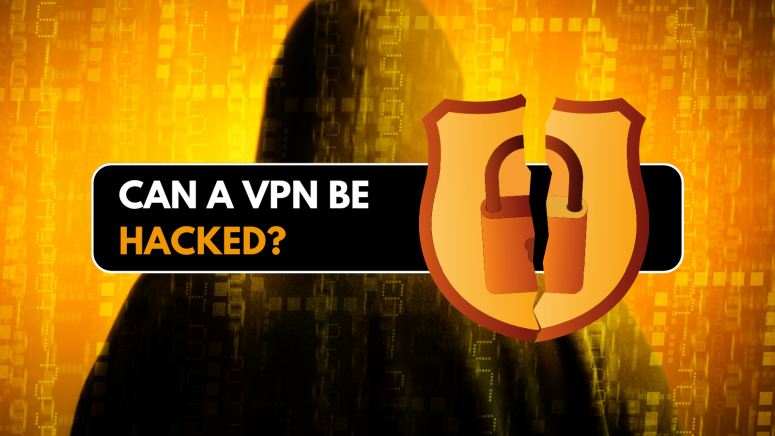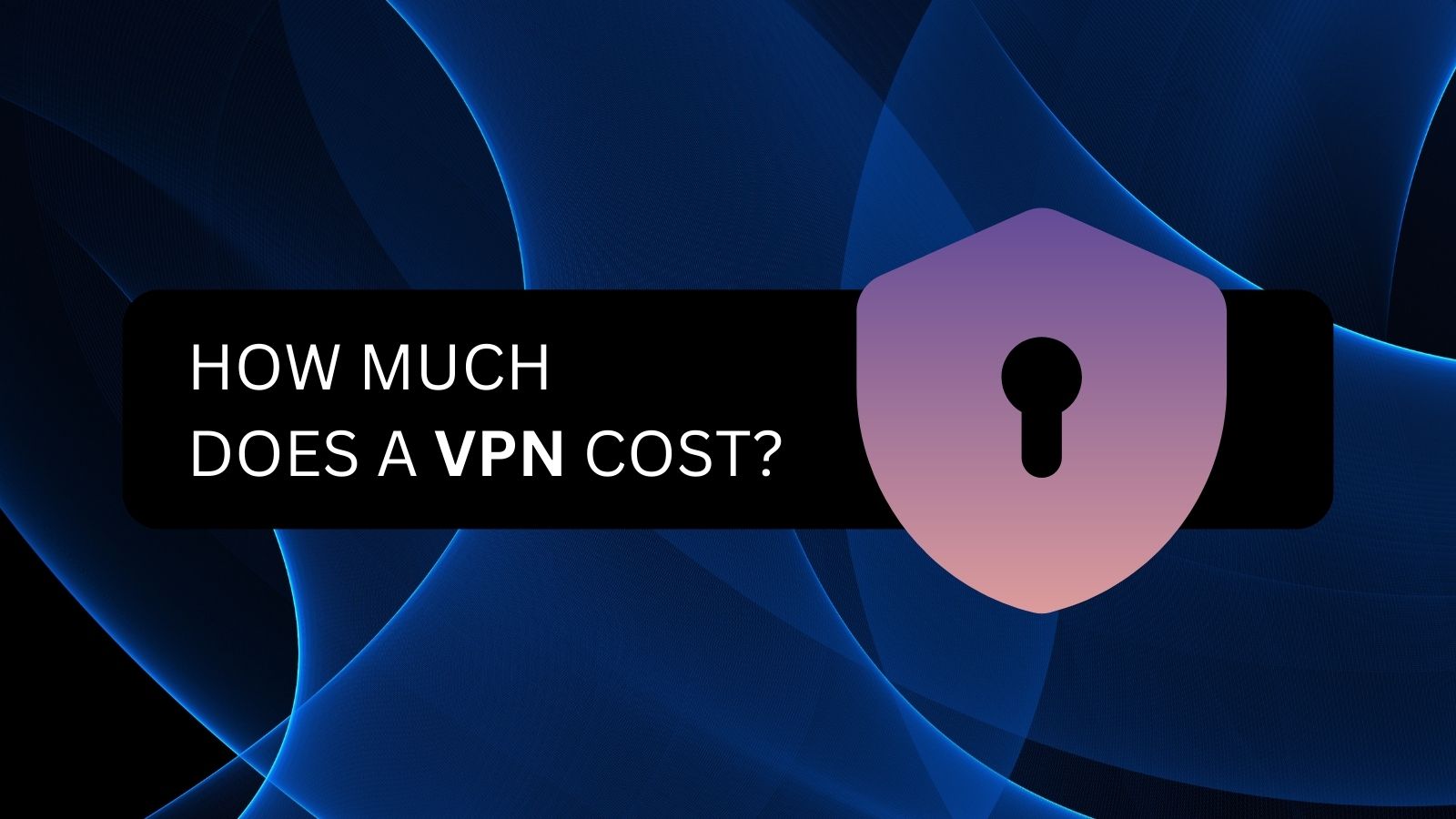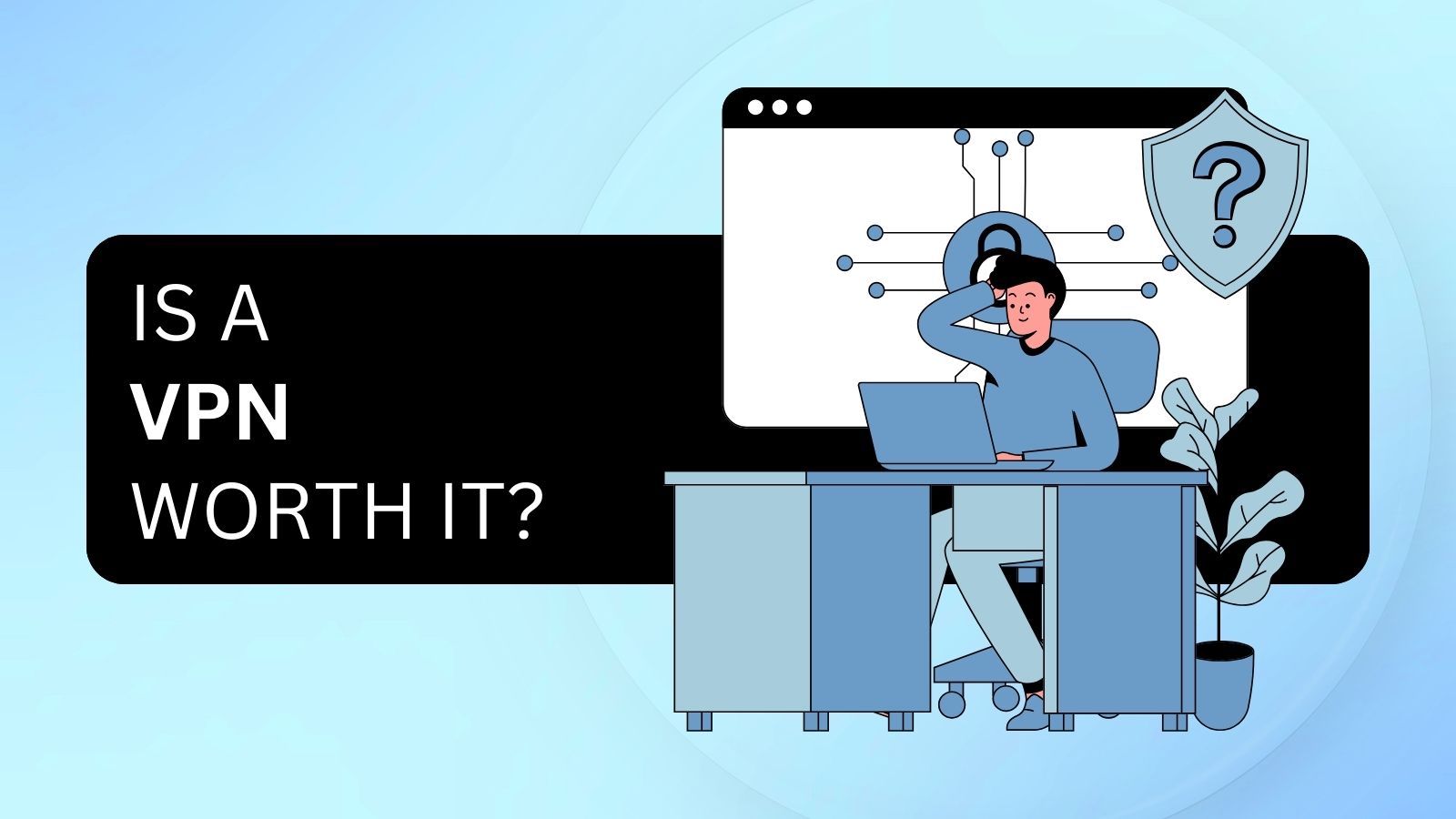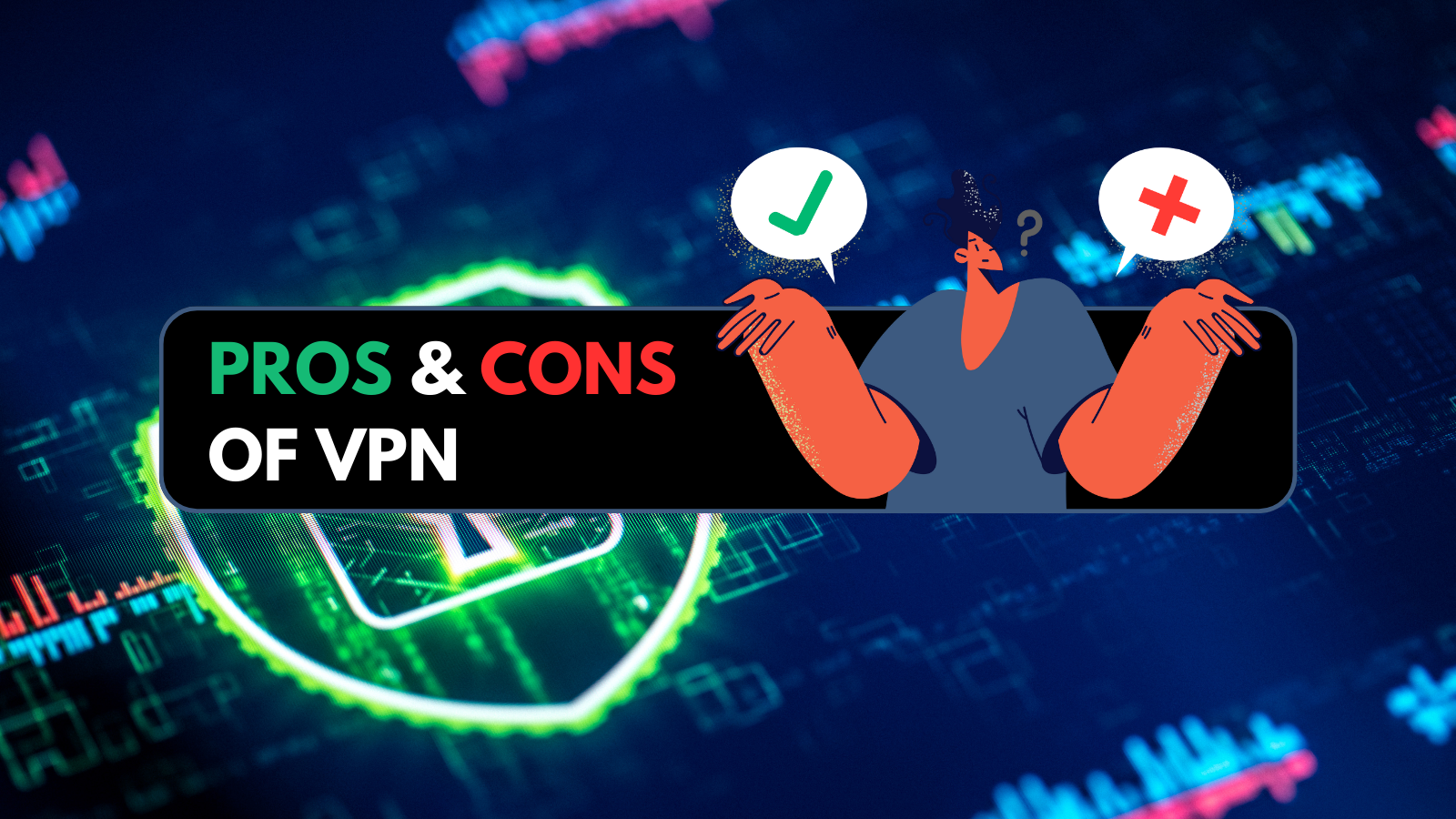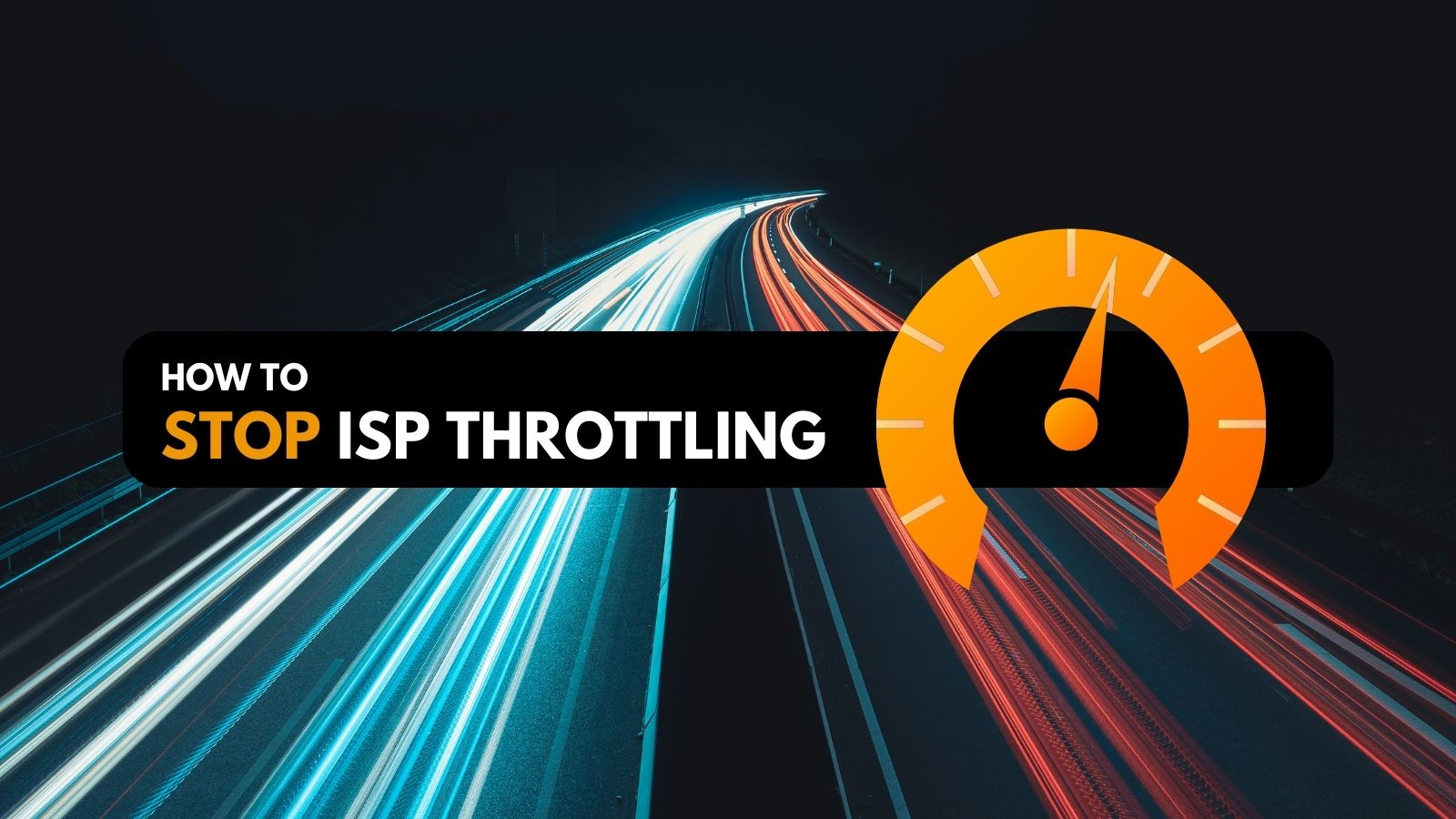
When you purchase through links on our site, we may earn an affiliate commission. Here’s how it works.
Can a VPN Be Hacked?
You may’ve heard that using a VPN is the best way to protect your privacy on the Internet and to keep yourself safe from hackers - and, that’s a true statement. But unfortunately, some VPNs can get hacked due to different vulnerabilities. This is especially true for the free ones.
If the VPN has weak encryption or the protocol is not secure, hackers can break through and read the contents of your data packets. Simply put, VPN protocols are a set of rules that form a secure tunnel through which your data flows. For instance, the PPTP protocol is obscure and has vulnerabilities in its code that hackers can exploit. So, while using a weak protocol, you can risk getting your private information stolen and misused in bank fraud, cybercrime, and other unlawful activities.
This article will discuss how malicious actors can hack a VPN, the risks you should be aware of, and the steps to take if your VPN gets hacked. After that, we shall look at the best VPNs to protect yourself from hackers.
How Can a VPN Get Hacked?
A VPN can get hacked by exploiting vulnerabilities in the protocol, stealing encryption keys, and compromising the backend servers. Hackers can also decrypt your encrypted data using brute force methods or capture leaked information outside the VPN tunnel.
Let’s discuss some common ways in which hackers can get to your VPN.
1. Exploits and Vulnerabilities in the VPN’s Protocol
A VPN protocol is a set of rules that specify how your data routes between your device and the VPN’s server. In other words, a VPN protocol determines how the VPN tunnel is formed. Also, consumer VPNs let you choose between protocols like WireGuard, OpenVPN, L2TP/IPsec, and more. However, all protocols are not the same, and each has its pros and cons.
Some VPN protocols are reported to have confirmed vulnerabilities and an obscure code base. Hackers can exploit a protocol’s vulnerability and gain access to your information. PPTP is one such outdated protocol that is relatively easy to hack. In fact, it has reportedly been cracked by the US NSA (National Security Agency).
Similarly, L2TP/IPSec is suspected of having hidden exploits present in its closed-source code due to potential collaboration between its parent company, Microsoft, and the NSA. So, it may potentially be vulnerable to man-in-the-middle attacks. In this attack, the attacker places himself between two parties and intercepts/alters their communication.
Generally, protocols with an open code base, meaning its code is public, are more secure than those with a closed code base. OpenVPN is a prime example of a highly secure protocol, as it has been extensively tested by the community.
2. Cryptographic Attacks
VPNs that use older and breakable encryption ciphers are susceptible to cryptographic attacks, in which hackers can easily decrypt your data after intercepting it.
But what are cryptographic attacks? To help you understand, let’s discuss how VPNs mask your data. VPNs hide your Web traffic by encrypting it, which is a process that converts the data into unreadable code. This is done using algorithms called encryption ciphers, such as Blowfish, ChaCha20, AES, and more.
Overall, a cryptographic attack aims to break the encryption and decrypt your data to read the contents inside it. When that happens, your security cover will be blown, and the hacker will be able to see all your Internet activity.
That being said, not all VPN encryption ciphers are the same. In this scenario, the key length is a major differentiating factor. Basically, the key length of a cipher refers to the number of bits present in its encryption key, and bigger keys mean better security. For example, AES-256-bit encryption has a key length of 256 bits and is considered unbreakable.
As technology becomes more advanced, it takes a shorter amount of time to break encryption ciphers and hash functions. For instance, the Blowfish cipher is vulnerable to birthday attacks, while the SHA-1 hash function can be broken cryptographically.
3. VPN Leaks (WebRTC, DNS, IP)
A hacker does not always have to break the encryption or hijack the VPN’s servers on the backend to gain access to your information. Rather, a hacker can also intercept leaked data outside the encrypted tunnel.
There are various types of VPN leaks that can expose your data. For example, in IPv6 leaks, the VPN fails to encrypt IPv6 requests. Similarly, during a WebRTC leak, the VPN fails to reroute the WebRTC connections properly.
Also, if there are issues with your VPN kill switch, your browser activity can briefly be exposed. So, the only prevention against such data leaks is to use the best VPN with a high level of security.
4. Compromising VPN Servers
In some cases, hackers can also compromise VPN servers through the backend. This can happen due to multiple vulnerabilities. For instance, the server’s login credentials might be weak. Similarly, it may also have configuration issues.
Once hackers gain access to the backend servers, they can access all the information you have willingly or unwillingly given to the VPN provider. This includes your credit card info, purchase history, billing address, name, and previous browsing activity. If the server remains compromised, your future internet activities will also stay exposed.
The worst part is that such attacks are quite common. In 2021, ChatVPN, SuperVPN, and GeckoVPN got their servers hacked. This resulted in the information of over 21 million users becoming public.
Similarly, in 2018, NordVPN also got its servers compromised. However, NordVPN assured that the users were safe because the server did not contain sensitive information or activity logs. They further clarified that this happened because one of Nord’s data center providers left the remote management system unprotected. Hence, compromising a VPN server does not always expose users' personal data unless all that key information is stored on that server.
Nevertheless, such a risk can be reduced heavily by using a high-security VPN that has performed 3rd party security audits in the past. We recommend ExpressVPN due to its unmatched security and history of providing a safe service.
5. Stolen Encryption Keys
Sometimes, hackers may manage to steal your encryption keys. These keys are used by encryption ciphers or cryptographic algorithms to encrypt/decrypt data securely. Using stolen keys, hackers can easily decrypt your data after intercepting your traffic.
Nowadays, capable VPNs use a feature called PFS (perfect forward secrecy). It ensures that the VPN client and server use unique symmetric keys. These keys are independently generated on either side and are never exchanged.
Furthermore, once a connection has closed, the previous keys become obsolete, and a unique key gets generated for every new session. So, even if hackers manage to get access to both keys in a single session, which is very unlikely, your future VPN sessions stay unaffected.
What Will Happen If Your VPN Gets Hacked?
If your VPN gets hacked, hackers can access your personal information and steal it. This can be used for identity theft or other types of fraud. They may also be able to track your browsing activity and infect you with malware.
Here’s a list of the most common risks of a VPN hack.
- Your Activities Can Be Spied On: If a VPN gets compromised on the backend, hackers can gain access to the server. When that happens, they will be able to monitor your IP address, track browsing activity, and see previous data if it has been logged.
- Hackers Can Steal Your Personal Data: This remains one of the biggest and most damaging risks. Some hackers are capable of causing long-lasting harm to an individual by stealing their identity. They can use your info coupled with social engineering tactics to harm your reputation and commit bank fraud and other crimes online.
- You Can Be Targeted with Phishing and Malware: A hacked VPN doesn’t automatically make your device vulnerable. However, if you use a compromised VPN on an unsecured public WiFi, you may be susceptible to man-in-the-middle attacks. The hackers can redirect you to malicious websites or fake websites and false login forms. This can make you vulnerable to phishing attacks.
- You Can Experience DDoS Attacks: In such attacks, hackers send an overwhelming number of data packets, far more than a server connection is capable of handling, resulting in massive slowdowns. Your IP is among the most vital pieces of information in this scenario. If a hacker knows your real IP, they can track your location and even hit you with DDoS attacks to make your Internet connection unresponsive.
How to Know If Your VPN Is Hacked?
To know if your VPN is hacked, check for signs of unusual activities like unauthorized credit card transactions, changes in your VPN client’s settings, new logins in your VPN account, and more.
The signs will depend on the invasiveness of the hack. In more invasive hacks, you may see potentially malicious or unwanted applications installed on your device. For that to happen, the hacker needs to gain access to your device, which is possible if you connect to an unsecured WiFI network using a compromised VPN.
An unusually slow connection speed can mean that your VPN’s server is compromised or is being targeted with a DDoS attack. However, note that any of these signs are not specific to hacked VPNs. So, you cannot immediately assume that your VPN is the culprit if you happen to experience such issues.
What to Do If Your VPN Is Hacked?
If your VPN is hacked, you should immediately start securing your device to protect yourself. First, disconnect from the VPN server immediately. Once that’s done, you can uninstall the client/app from your device and assess your device’s security.
Let’s take a look at the necessary steps and discuss why they are important.
- Disconnect the VPN: This should be your very first response if you suspect that your VPN is hacked. You would not want the hackers to intercept more of your traffic or find more information about you. Once you have disconnected from a hacked VPN, you’re no longer on a compromised server and the hacker cannot intercept your future activity.
- Uninstall the VPN Client: In some cases, especially when the hack is invasive, you will want to uninstall the VPN client. Since you may not be able to figure out the true extent of the hack, it is safe to uninstall the VPN client/app from your device if you suspect it’s hacked.
- Never Use the Same VPN Credentials Again: If you notice new and unknown device logins on your VPN account, it can mean that your login details have been compromised. Hackers often leak databases after gaining access to them, which results in a wide number of user login/passwords becoming public. Make sure that you’re not using the same password on all your important accounts. Also, never use the same credentials again on any service.
- Change All Passwords Saved on Your Device: You may think that a simple VPN hack won’t expose passwords saved on your device. That may be true, but you never really know the true extent of the hack. For all you know, your device may have already been infected with a malicious tool. It would be safer to immediately change all your passwords and turn on two-factor authentication for added security.
- Assess the Extent of the Compromise: Assessing the extent of the compromise can help you determine the further steps that you should take. For instance, your device may have been infected with malware via an unsecure public WiFi because your VPN was not working as it should have. In that case, you may want to do a full device scan, or reinstall the operating system to completely secure yourself.
- Switch to a Better VPN Provider: Eventually, you would want to switch to a different VPN provider that has a good history of independent security audits. Two popular examples would be ExpressVPN and CyberGhost VPN.
Best VPNs for Protection From Hackers
To protect yourself from hackers, you need to use a VPN that offers secure protocols and unbreakable encryption. You should also make sure that it has a no-logging policy. It may be surprising to know that hackers also use high-security VPNs to hide their identities.
Let’s take a look at the best VPNs for ethical hackers and regular users alike.
- ExpressVPN: If you’re looking for the best security and reliability, ExpressVPN is the top choice. This VPN supports protocols like OpenVPN UDP/TCP, but also has a proprietary protocol called Lightway and WireGuard in terms of security. It also features military-grade AES-256-bit encryption, data leak protection, and a kill switch.
- NordVPN: With NordVPN, you get the option to choose between both OpenVPN and WireGuard, two of the most secure VPN protocols. It comes with incredible features that can further enhance your security, such as double-hop connections and a kill switch.
- CyberGhost VPN: CyberGhost is on the same level as ExpressVPN and NordVPN, as it uses three secure VPN protocols - OpenVPN, Wireguard, and IKEv2. However, you cannot use OpenVPN on its macOS client. It comes with a kill switch, DNS leak protection, and strong AES-256 bit encryption.
Remember that even though you can use VPNs to secure your connection, they will not protect you against backdoor attacks, vulnerabilities in software, malware, and unsafe browsing practices. It is important to educate yourself about safe Internet browsing.
Final Thoughts
There are various ways in which hackers can hack your VPN, with far-reaching consequences, depending on the extent of the hack. For instance, a server compromise on the backend can expose your personal information resulting in identity theft and online fraud.
Most VPN hacks occur due to weak encryption or outdated protocols. Hence, you must use a VPN with strong encryption and robust protocols. Furthermore, the VPN provider should also have a history of independent security audits. Our top recommendation is ExpressVPN because it checks all these security boxes and protects you from hackers.
We hope that you enjoyed reading this article. If you have any comments, remarks, or experiences to share, feel free to comment below!

